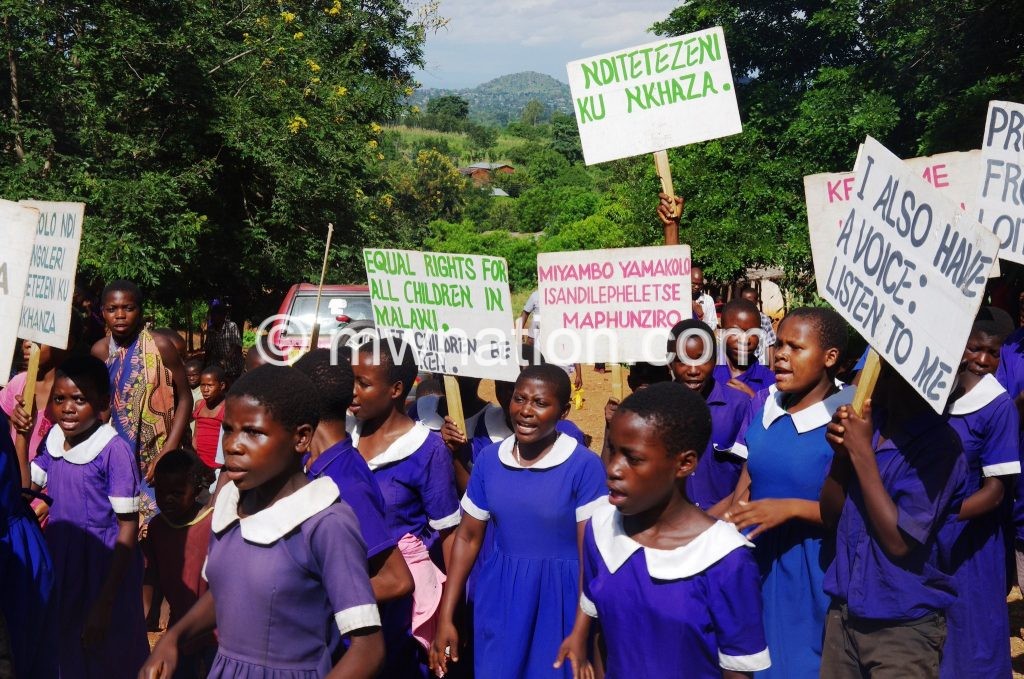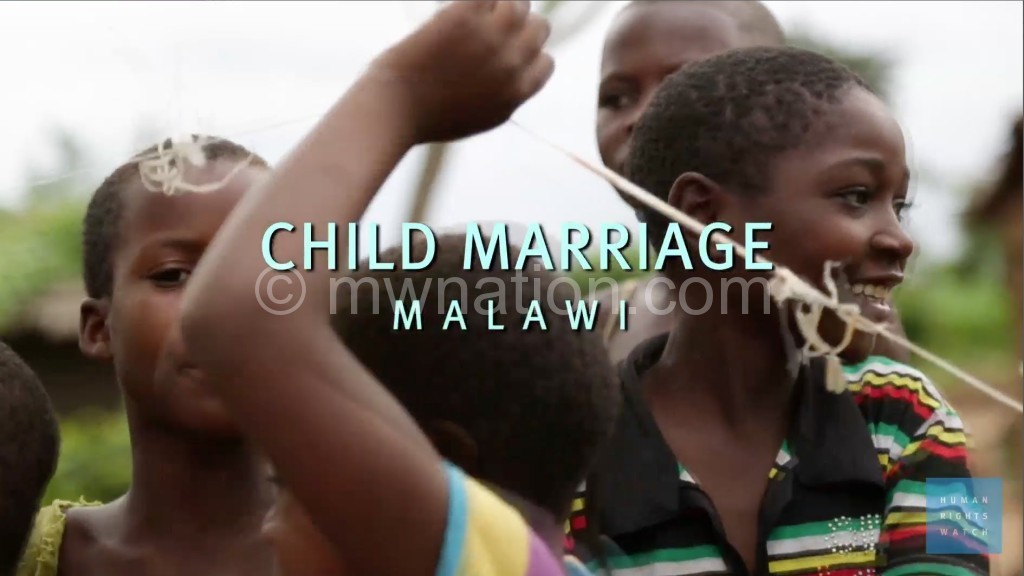Protecting girls at risk
Malawi’s population has grown from 13 million to 18 million in the past decade, piling pressure on farmland and the environment.
Consequently, poor households face chronic hunger and deepening poverty which drives boys and girls to marry young.

The United Nation’s Population Fund (UNPF) reports that Mchinji has second highest prevalence of child marriages in the country, where almost half of girls marry before their 18th birthday.
Tidziwenji, a 16-year-old based in Traditional Authority Nyoka quit Primary School Leaving Certificate of Education examinations to nurse her two-month-old baby girl.
While government and its partners are working together to keep every girl in school, child marriages and teen pregnancies persist.

A 17-year-old girl disguised as Ndaziona fled her home to marry due to “lack of parental care”. She saw her nine siblings quit school one after another as their parents could not afford school fees.
“So, I just left home and followed my boyfriend,” she says.
Mchinji District Social Welfare Office reports that over 538 girls aged below 18 got pregnant between March and July while over 418 others got married.
The district education office indicates that 19 schoolboys and 87 primary school girls married young during the school closure to reduce coronavirus transmission.
At Mchinji District Hospital, the health system shows that 411 teenage girls were receiving pregnancy-related services from March to June.
“The figures are higher than last year’s counts,” says Agnes Jalafi, district coordinator for youth-friendly health services. “However, the pandemic could be to blame. Since the closure of schools in March, our health facilities have been recording high numbers of teenage girls seeking antenatal services.”
Jalafi lamented the low uptake of modern contraceptives among the youth.
“The uptake is below 20 percent,” she explains, calling for more efforts to encourage the youth to get sexual and reproductive health services to reverse the current trend.
But assistant district social welfare officer Hanna Mangani says the fight to safeguard the youth, especially adolescent girls, will be a losing battle unless parents take their responsibilities.
“My office works closely with the police to track child marriages and teen pregnancies, but some parents shield the cases by faking the age of girls, which makes it difficult to win the case in court,” she explains.
James Mauzauza, community service officer at Mchinji Magistrate’s Court, calls for greater community awareness and involvement of traditional leaders to make child protection work at all levels.
“Though we have good laws that outlaw child marriages and sexual intercourse with minors, communities look at teenage pregnancies and child marriages as normal.
Time has come for the Marriage, Divorce and Family Relations Act to take its course on such matters, but the courts seldom receive such cases,” he says.
Community Initiative for Social Empowerment promotes girl-child education to end child marriages and teen pregnancies in Mchinji.
Its executive director, Margaret Sapezeka says the results “remain too negligible”.
She says: “We have been promoting girl-child education, facilitating go-back-to-school initiatives. However, that has not worked much.
“We need to include economic empowerment as most girls cite poverty as the main driver of these vices.”
Economic help
Journalists Association against Aids (Journaids) has rolled out soft loans for teen mothers to enhance accountability in ending early or forced marriages in Mchinji with support from Grand Challenges Canada.
“We feel that this revolving loan will help teen mothers economically and make independent decisions,” said Journaids programmes manager, Dingani Mithi. “We envision them resisting temptations of entering marriages.”
Lonely Kaima, a member of a girls action group in Chibwana Village in Traditional Authority Mlonyeni, received K100 000 through Mchinji Civil Service Savings and Credit Cooperative Organisation.
The 20-year-old girl was forced to quit school and become a bread winner by her parents. She then worked as a housemaid in Lilongwe where she became pregnant aged 17.
“Poverty made me do things that made me become a mother when I was supposed to be in school. But this loan gives me a second chance. I will start a business to sustain my life,” she said.
Lonely, who sells cotton wrappers imported from Zambia, has become a change agent among her peers and young girls.





